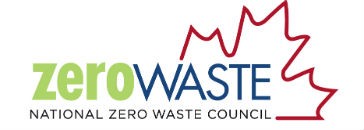
A new study suggests Canada could cut greenhouse gas (GHG) emissions associated with food waste by more than 60 per cent by 2030 if actions in a proposed nationwide food waste reduction strategy were implemented.
A National Zero Waste Council-commissioned report, written by Boston Consulting and Tetra Tech, found that adopting proven actions and technologies to reduce food waste, could directly reduce four million tonnes of GHGs generated in Canada. These measures as well as others are described in the National Food Waste Reduction Strategy.
The Strategy, which was formally unveiled in November 2016 by the National Zero Waste Council outlines a broad range of initiatives for cutting waste in Canada along the food supply chain. The Strategy includes recommendations such as:
- Establishing a national food waste reduction target of 50% by 2030
- Reducing confusion over date labelling on food packaging
- Implementing local organic waste disposal bans
- Supporting new technologies to recover energy and compost from organic waste
- Stimulating increased donations of food to charities through a tax incentive
- Encouraging infrastructure investments to strengthen capacity of the charitable sector
"Canada currently has ambitious targets for reductions of 175 million tonnes of GHG by 2030," said Malcolm Brodie, Chair of the National Zero Waste Council. "However, this achievement will leave us 44 million tonnes short of the target to cut 30 per cent of emissions from 2005 levels - Canada's commitment in the Paris Agreement. Focusing on actions described in the National Food Waste Strategy clearly would help to fill the gap in this shortfall."
The report authors developed a methodology to estimate the total emissions of greenhouse gases in Canada by using data from 10 rural and urban Canadian municipalities and regions, along with similar diverse sources across the US. For 2015, they found emissions were equivalent to about four million tonnes of CO2. They then considered the effect on these emissions with the implementation of three initiatives: food waste prevention in households and businesses; diversion of organic material from landfills; and adopting sustainable waste management practices and technologies.
"This study is a strong endorsement of the National Food Waste Reduction Strategy, which would not only reduce food waste in our country, but could also contribute positive actions on climate change," said Bob Long, Co-Chair of the National Zero Waste Council Food Working Group. "As the Council's National Food Waste Reduction Strategy outlines, reducing food waste will result in other environmental, social and economic benefits."
The National Zero Waste Council also plans to launch a national campaign directed at raising consumer awareness of food waste and ideas as to how to reduce food waste at home in 2018.



